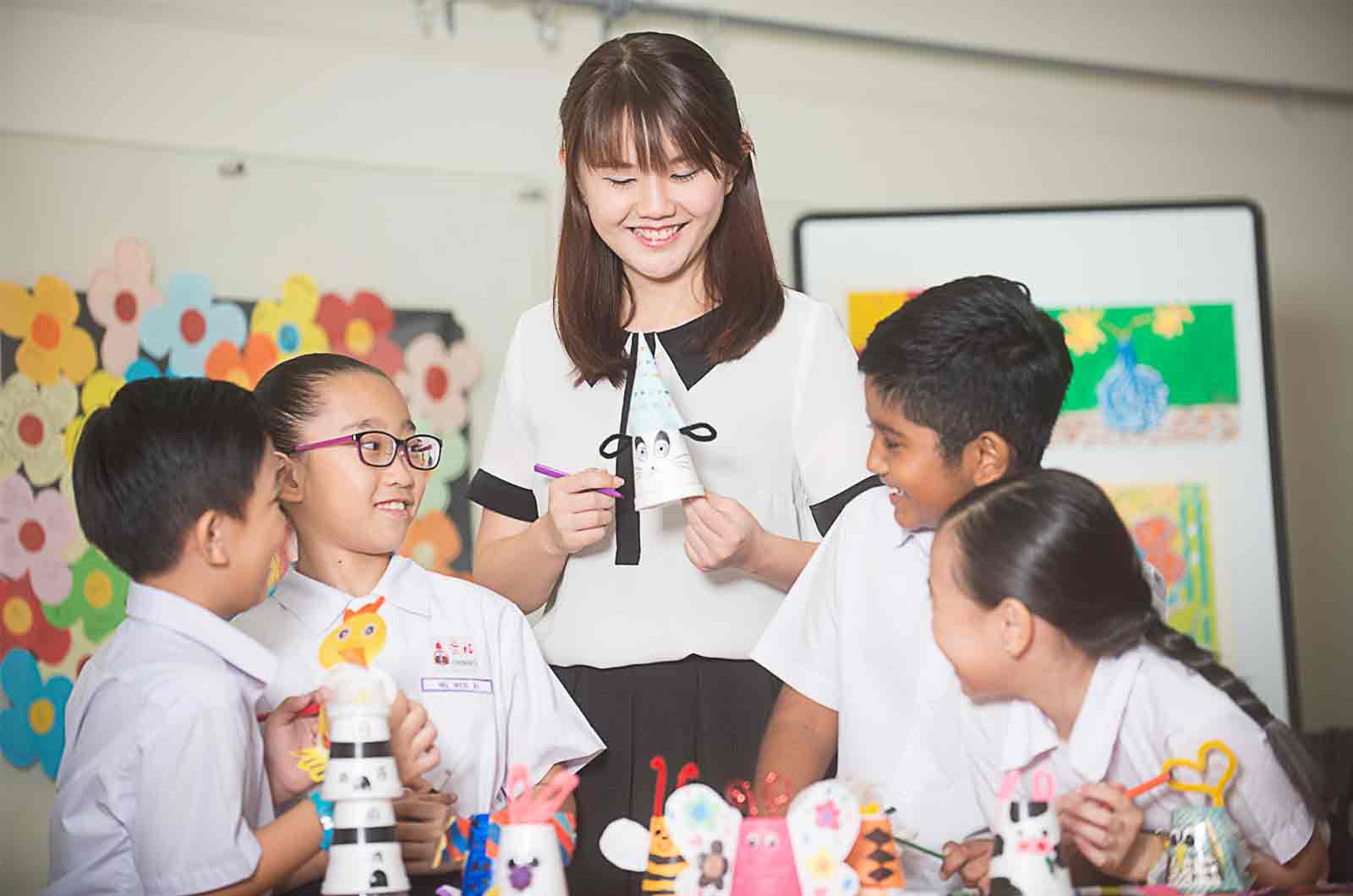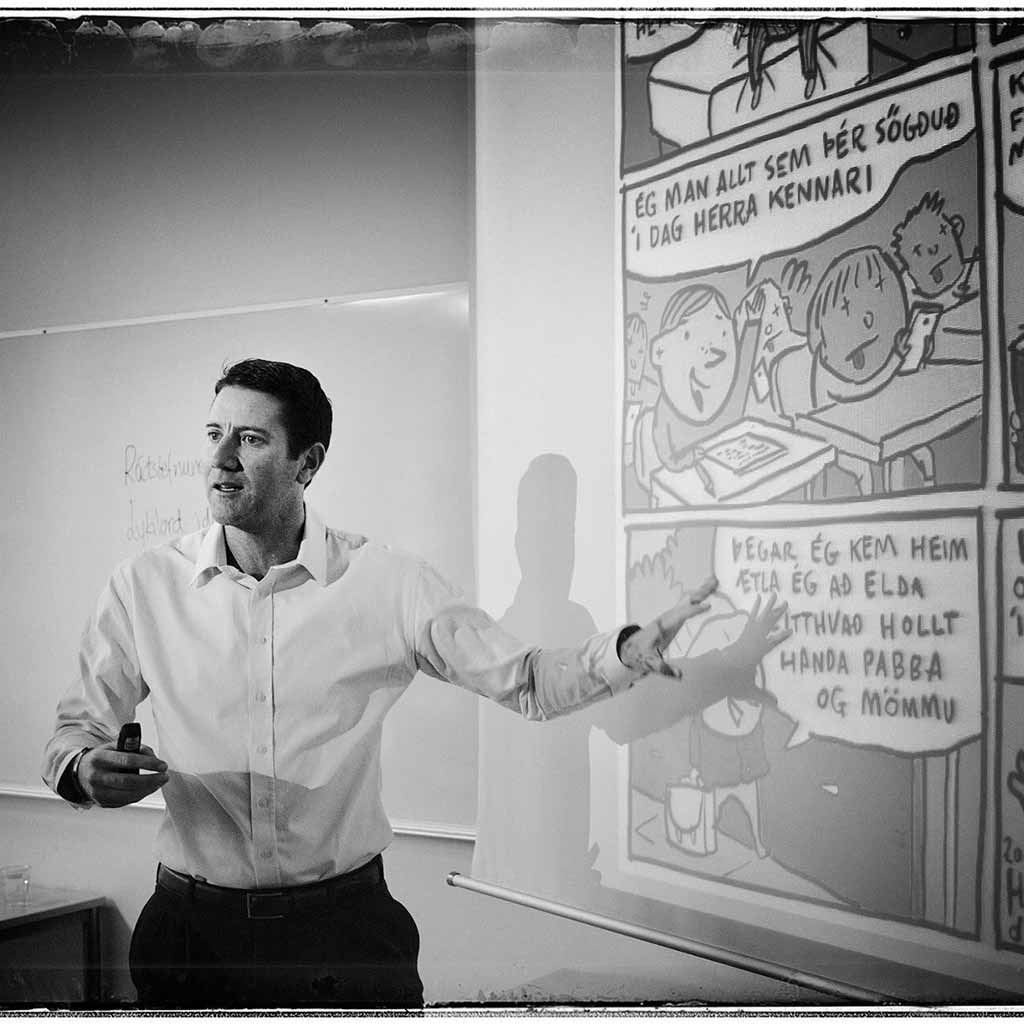 ESSAYS
ESSAYS

For over a decade, the Office of Education Research (OER) have been looking into discovering how change occurs in an education system, and how to improve classroom pedagogy. These efforts have borne fruit in many areas, one of which is curriculum innovation, where OER has identified key enablers of change at different levels in the education system.
Drawing upon insights derived from a synthesis of the research undertaken during the 2nd (FY2008–2012) and 3rd (FY2013–2017) tranches of the Education Research Funding Programme, OER is proposing a model of sustainable teacher epistemic shift. This model is situated within an education system in flux, evolving to get students future-ready in a knowledge-based economy.
Change cannot happen without teachers
Teachers are both pedagogues in the classroom and agents of change in education. Epistemic shifts will take place only if their core beliefs about teaching and learning can be influenced. To this end, OER identified four enablers that can turn teachers into agents of system change:
These enablers have been proven through research to improve adaptability and increase pedagogical repertoires, and thereby flexibility, in teachers.
Change needs ecological leadership
For teachers to be change agents, the school environment needs to be conducive for education innovation and teacher learning. Rather than view schools as formal and hierarchical organisations, they should be seen more as ecologies that comprise different key players and their relationship with one another and the environment.
In an ecology, leadership is not just top-down; leaders can lead from the middle, spreading change in multiple directions and across different levels of a system. Ecological leadership is best enabled when leaders are able to:
Change begins with the system itself
Teachers are sometimes less than enthusiastic about innovations introduced by external parties. As emergent needs based on concerns shared by other teachers may be more relevant, teachers can be encouraged to form Professional (PLCs) or Networked Learning Communities (NLCs) with their peers to address such needs.
These communities allow for evidence-based innovations to be scaled up or diffused across the system, and are promoted by the following enablers:
To avoid “lethal mutations” when innovations are adapted to a point whereby pedagogical essentials are lost, teachers should obtain the design capacity and research literacy to understand the nature of innovations.
Change emphasises student outcomes in 21CC
Research on 21st-Century Competencies (21CC) has seen OER developing innovations in three 21CC categories—cognitive, inter-personal, and intra-personal competencies.
Effective 21CC innovations share two characteristics: a 21CC learning environment that typically uses technology to expand learning spaces; and discipline-specific 21CC that require students to synergise different kinds of 21CC.
These innovations have created a socio-technological ecosystem where both teachers and students use ICT learning platforms to learn and share with others. And because learning spaces have expanded through technology, new forms of 21CC assessments and student-generative learning become possible.
A visible and persistent dialogue on 21CC within education can greatly encourage an epistemic shift in teachers towards 21CC pedagogy.
Change supports low-progress students
The support needed by low-progress students (LPS) often goes beyond conventional academic learning and teaching. OER researchers have looked into specific issues that LPS face, such as cognitive processes and special needs, and identified five enablers:
Research have shown that these efforts may improve learning for LPS by:
Change can also be learner-driven
Students can also play a part as change agents in education. Student-oriented research have since led to changes in teaching practices, as teachers realise the students’ capabilities in leading some of their own learning. OER’s curriculum innovations have sought to understand and improve these aspects of learning:
Teachers at the heart of system change
The model of sustainable teacher epistemic shift puts teachers at the heart of system change. Though they mainly function in classrooms (micro layer), teachers remain connected to teacher-leaders (meso layer), as well as education policies, curriculum innovations and teacher networks (macro layer).
Teacher-leaders have to reach out to other teachers and also communicate with school and system leaders, who in turn need to be in touch with teachers. This way, all three layers are ecologically connected in the education system.
Epistemic change needs to happen for curriculum innovations to be sustainable. Teacher epistemic shift is the highest leverage of change in overcoming tensions between performative pedagogies and inquiry-based learning. As such, stronger pedagogies that connect 21CC learning and teaching, supplemented by agentic behaviour of teachers and apprenticeship with teacher-leaders, can promote epistemic change in teachers.





